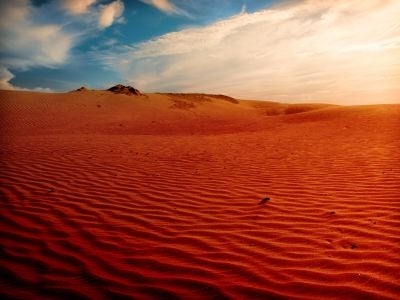Your support helps us to tell the story
From reproductive rights to climate change to Big Tech, The Independent is on the ground when the story is developing. Whether it's investigating the financials of Elon Musk's pro-Trump PAC or producing our latest documentary, 'The A Word', which shines a light on the American women fighting for reproductive rights, we know how important it is to parse out the facts from the messaging.
At such a critical moment in US history, we need reporters on the ground. Your donation allows us to keep sending journalists to speak to both sides of the story.
The Independent is trusted by Americans across the entire political spectrum. And unlike many other quality news outlets, we choose not to lock Americans out of our reporting and analysis with paywalls. We believe quality journalism should be available to everyone, paid for by those who can afford it.
Your support makes all the difference.As negotiators near a deal on preserving forests as a way to fight climate change, a top advocate for deserts says that the planet's driest lands should also play a role.
Luc Gnacadja, head of the UN Convention on Action against Desertification is urging representatives of 194 nations to help the some two billion people who live in the driest areas of the planet, as they try to reach a deal on climate change after the landmark Kyoto Protocol's requirements end in 2012.
"Those who cut the deal failed to put forests fully into the Kyoto Protocol so we lost a decade and a half. Now we are thinking of a deal for after 2012," Gnacadja said in an interview with AFP.
"We hope that the world will not make the same mistake now by not including the potential of the soil in arid lands," he said.
An estimated four percent of annual emissions of harmful gases come from arid lands. But when such lands are restored, they can store carbon - although at a lower level than forests, which are high on the agenda at the two-week conference in Cancun.
Deserts are largely unrecoverable. But Gnacadja hoped that climate talks would commit to regenerate lands at risk of desertification, helping countries adapt to climate change that is blamed for increasing extreme rains and droughts.
"When you stock and sequestrate carbon to the soil, not only do you reduce emissions - at the same time, you increase the soil fertility and productivity, the capacity of the soil to hold water," Gnacadja said.
The United Nations this year inaugurated a decade for deserts and the fight against desertification, which affects 12 million hectares (30 million acres) of land fit for agriculture each year, the size as Greece or Benin, Gnacadja's home country.
More than 40 percent of land across the planet is dry, and home to one out of every three of the world's inhabitants, or some 2.1 billion people.
Ninety percent of that land is in developing countries with high levels of poverty, and some one billion of its people face threats to their food sources due to advancing desertification.
As the planet warms, deserts expand, threatening access to water as well as longer droughts and also floods.
If areas are recovered for agriculture, that will help secure food for some of the nine billion people expected to inhabit the planet in 2050, experts say.
"A tropical forest system retains much more carbon than a semi-arid system, and in between there are grasslands which retain it inside the ground - a slow process with large potential," said Carlos Nobre, the director of the Brazilian Institute for Spatial Investigations.
On drylands, sub-humid systems store between 40 and 50 tons of carbon per hectare underground, compared with between 120 and 150 for a tropical forest, he said. Semi-arid lands store only 10 to 15 tons per hectare.
Many participants expect the Cancun talks ending Friday to reach an agreement on how wealthy nations will help developing ones - particularly Brazil, Indonesia and the Democratic Republic of Congo - to preserve their forests.
But a stumbling block remains on what role the market would play.

Join our commenting forum
Join thought-provoking conversations, follow other Independent readers and see their replies
Comments